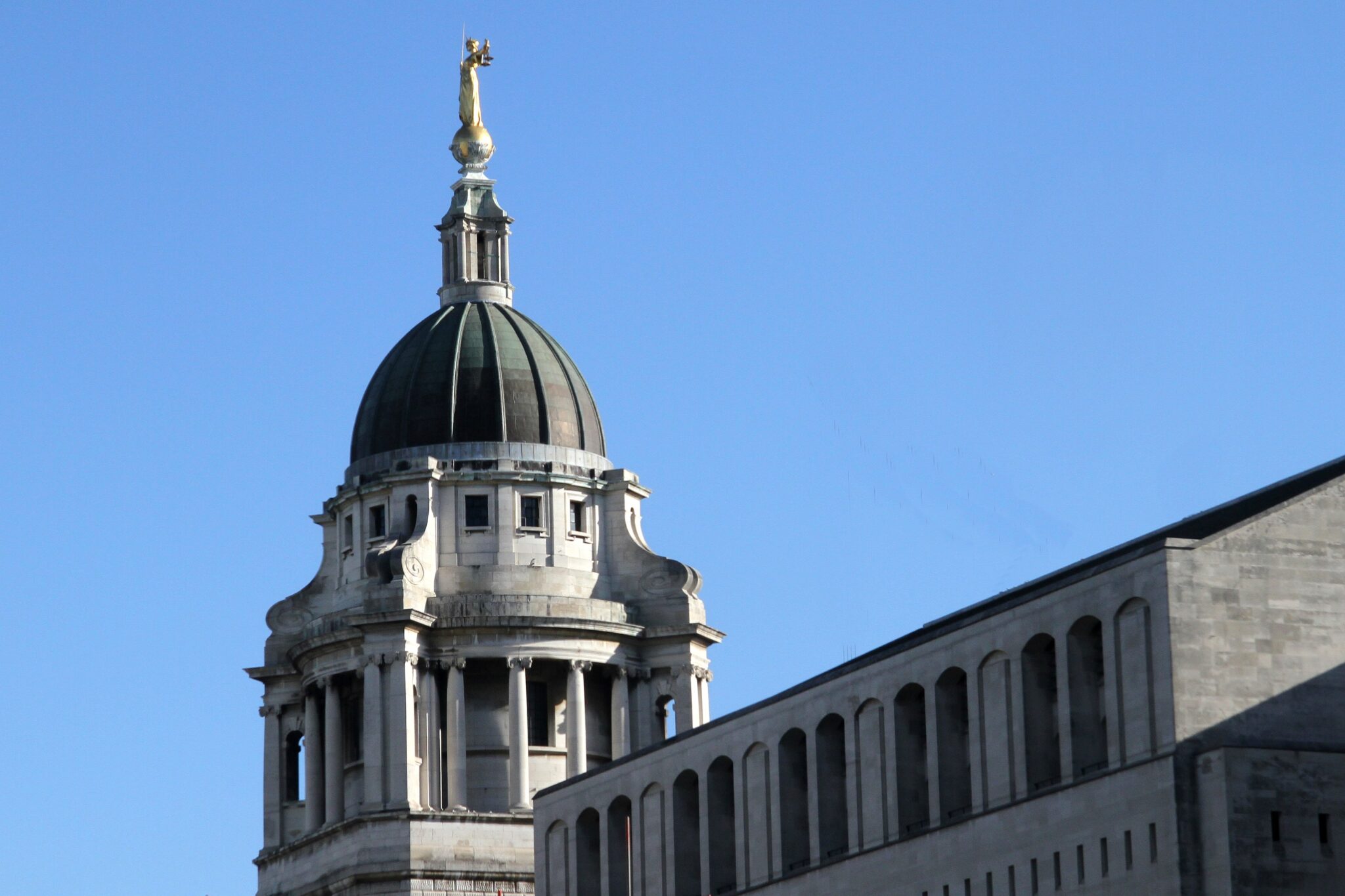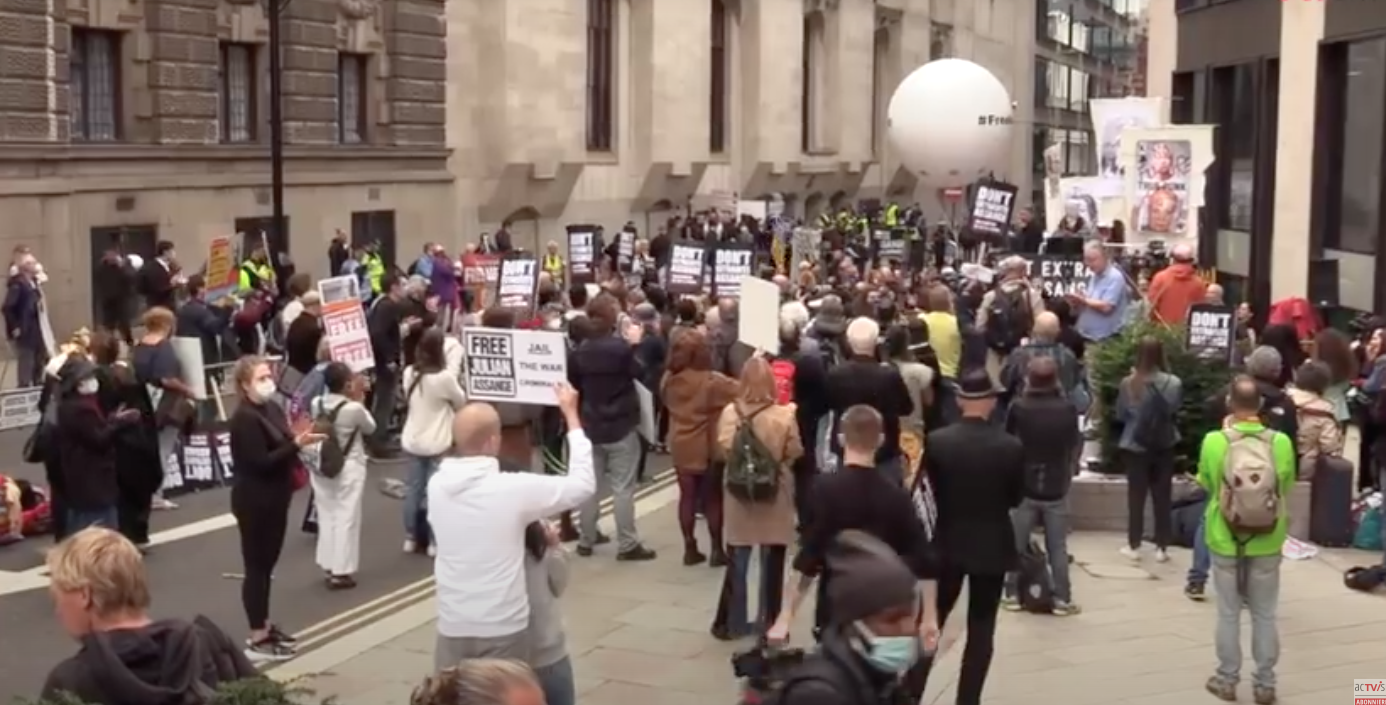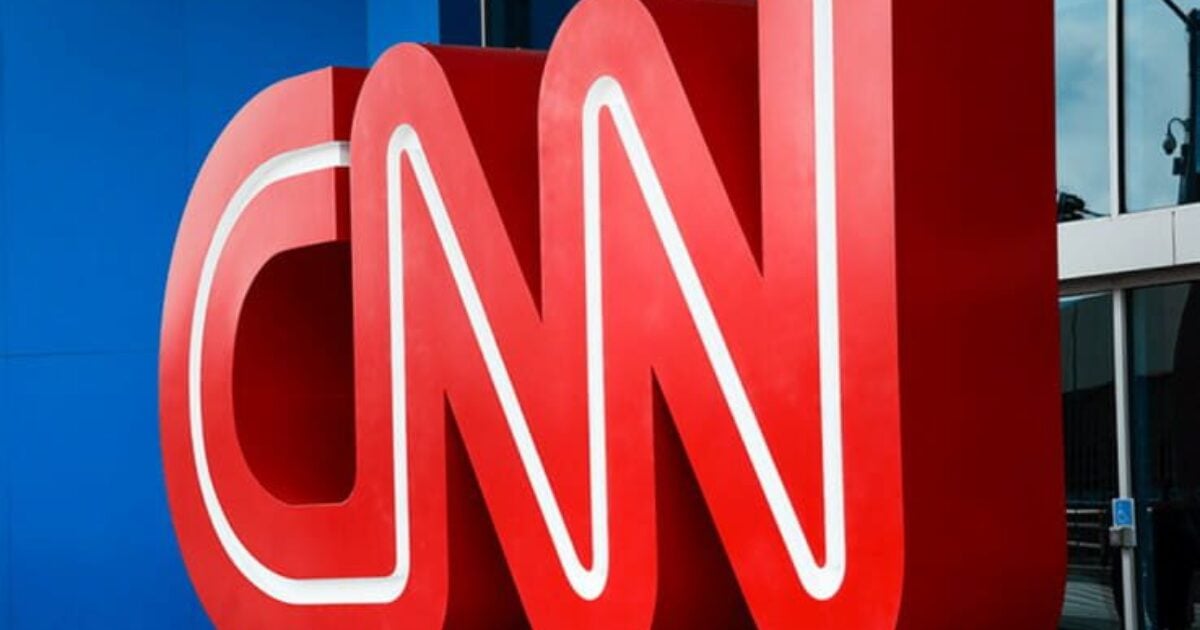Julian Assange’s ‘Trial of the Century’: 10 Reasons Why it Threatens Freedom of Speech
by Fidel Narváez, Consortium News:
 Fidel Narváez was in the court in London for the majority of the hearings and offers this comprehensive summary.
Fidel Narváez was in the court in London for the majority of the hearings and offers this comprehensive summary.
At the end of the hearings that seek to extradite journalist Julian Assange to the United States, on Oct. 1, his defense team should have felt triumphant. Because with more than 30 witnesses and testimonies, throughout the whole month of September, they gave a beating to the prosecution representing the U.S.
TRUTH LIVES on at https://sgtreport.tv/
If the case in London were decided solely on justice, as it should in a state based on law, this battle would have been won by Assange.
However, this “trial of the century” is, above all, a political trial, and there remains the feeling that the ruling was made beforehand, regardless of the law.
The court kicked off on Sept. 7 with hundreds of protesters outside, in contrast with the restrictions that the court imposed inside — in what is the most important case against the freedom of expression in an entire generation.
It only permitted the entry of five people on the list of “family members,” and five people from the public, who were put in an adjacent room, where they were barely able to follow the video transmission.
The judge, Vanessa Baraitser, who is overseeing the case, without a convincing reason cut the access to the video stream that had previously been authorized to nearly 40 human rights organizations and international observers, including Amnesty International, Reporters Without Borders and PEN International.
Each day, starting at 5 am, selfless activists stood in line so that observers like Reporters Without Borders, for example, could enter and take one of the five available seats. Thanks to them, and to family members of Assange, I was able to be in court to attend the majority of the hearings.
Julian himself was also woken up, every day, at 5 am and, naked and handcuffed, subjected to humiliating inspections and x-ray scans, before being put into a police car and crossing through London traffic for more than an hour and a half.
At 10 a.m., when court was finally in session, Julian had already endured five hours of insult, before being put in a glass cage for the rest of the day.
To communicate with his lawyers, Julian had to get on his knees to talk to them through a slit in the cage, just a few meters away from the ears of the prosecution’s attorneys — something that clearly violates due process.
The defense began by requesting deferment of the hearings, in light of the fact that the U.S. had filed a new extradition request at the last minute, with new accusations that not Assange himself was able to look over.

Assange supporters outside the Old Bailey courthouse in London at the start of the extradition trial of Julian Assange. (You Tube, AcTivism Munich still)
In the previous six months, Julian had practically no access to his lawyers. The judge, however, rejected any deferment.
The defense had based its strategy on proving that the legal process was being abused in many interrelated ways. In this extensive summary, allow me to explain 10 reasons that I identified as important factors against the extradition.
For this exercise I have relied, furthermore, on the reporting of American journalist Kevin Gosztola and that of the former British diplomat Craig Murray, next to whom I shared a seat in the court.
1) The accusation is for a “political crime,” which is not subject to extradition. Publishing classified, and truthful, information is not a crime.
Julian Assange would be prosecuted under the Espionage Act of the United States for a political “crime,” which is excluded from the extradition agreements between the United Kingdom and U.S.
The U.S. attorney general’s office has furthermore said that Assange, as a foreigner, would not be able to exercise the right of the First Amendment. That is to say, punishments apply to foreigners in the U.S., but not legal protections.
The director of the Freedom of the Press Foundation, Trevor Timm, told the court that the extradition of Assange would be the “end of national security journalism” because it would criminalize all reporters who receive secret documents.
He criticized the accusation that having a SecureDrop is a crime, as The Guardian, The Washington Post, The New York Times, and more than 80 other news organization, including the International Consortium of Investigative Journalists, also currently use SecureDrop.
Timm said the Department of Justice has a political orientation, that the prosecution cannot decide who is a journalist and who is not, and that the charges against Assange “would radically rewrite” the First Amendment.
This was also affirmed in the written testimony by the director of the Knight First Amendment Institute at Columbia University, Jameel Jaffer, who insisted that the accusation against Assange is meant to discourage journalism that is essential for democracy, and represents a grave threat to the freedom of the press.
The professor of journalism and former investigative reporter Mark Feldstein testified that leaks are a “vital element” of journalism, that the collection of classified information is a “standard operating procedure” for journalists, and that WikiLeaks’ publications are constitutionally protected.
The U.S. lawyer Eric Lewis, a former law professor at Georgetown University, noted that the Obama administration had finally decided not to try Assange because of what is known as “The New York Times problem” — that is to say, there was not a way to prosecute him for publishing classified information without the same principle applying to many other journalists.
Lewis testified that the Trump administration had put pressure on prosecutors from the Eastern District of Virginia, and cited a New York Times article that referenced Matthew Miller, the former Justice Department spokesman under Obama, who warned the case could establish a precedent that threatens all journalists.
Read More @ ConsortiumNews.com



